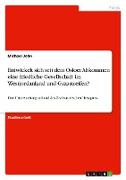- Start
- Hegemon and Potential Peer Competitor: An Analysis of the United States' Security Strategy Towards China
Hegemon and Potential Peer Competitor: An Analysis of the United States' Security Strategy Towards China
Angebote / Angebote:
China is in the middle of a comprehensive economic, political and military transformation process, and the economic interdependencies between China and the United States are significant. The purpose of this thesis is to evaluate the US contemporary security strategy towards China with reference to both apparent strategy and policy and to the politics of implementation. The main research question is: Is the United States' contemporary national security strategy for dealing with China appropriate in the light of political and economic development in China? The theoretical framework for this thesis' analysis addresses the issue of the emergence of a peer competitor to the US by studying how a potential peer interacts with a hegemon. Using exploratory modeling techniques, pathways of the various potential peer and hegemon interactions are modeled to identify specific patterns and combinations of actions that might lead to rivalries. The analysis of China and the US strategies leads to the conclusion that the United States' contemporary security strategy for dealing with China is inconsistent, and that it is not appropriate in the light of political and economic development in China. On the one hand, the United States is publicly proclaiming engagement, cooperation and good relations with China. On the other hand she invests heavily in defense to deter the Chinese from entering those areas that the US currently dominates. While China has chosen reform with strong elements of revolution as its main path, the US strategy is characterized by co-option and constrain. The consequence is uncertainty and to a certain degree instability.
Folgt in ca. 15 Arbeitstagen





